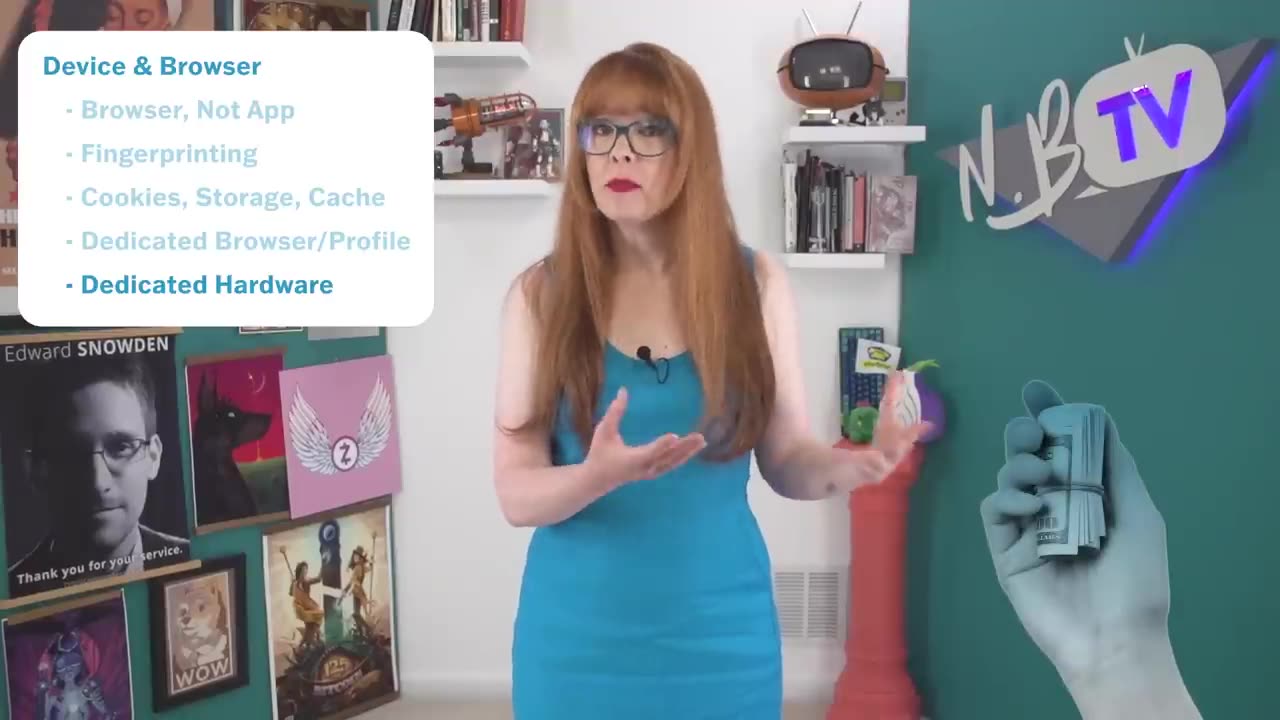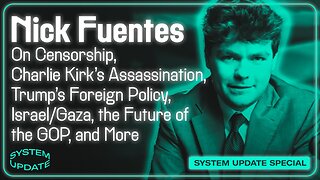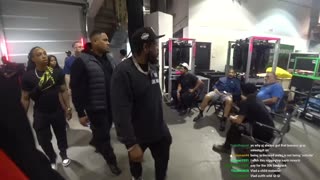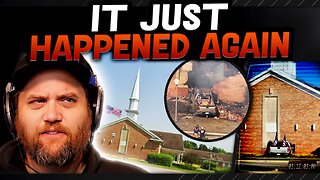Premium Only Content

Living Under An American Hostile Regime
Google AI Overview
Several interpretations of the term "Living Under An American Hostile Regime" emerge from the search results, reflecting various perspectives and contexts:
1. Experiencing US immigration and border enforcement policies
Some sources, particularly those focused on international students and immigrants, describe the US immigration system and border enforcement measures as creating a hostile environment.
According to Scholars at Risk, increased detentions, denials of entry, and deportations under certain executive orders have raised concerns about protecting individuals from increasing incidents of detention and deportation.
2. Citizens of countries with strained relations with the US
In some countries, majorities of people perceive the US as a threat, rather than an ally.
This sentiment can be particularly strong in some Muslim-majority nations and countries in the Middle East.
The US image in the Middle East has been described as "dismal" for some time, according to the Pew Research Center.
Public opinion surveys indicate that people in several countries, including Canada and Mexico, view the US as their top threat.
US economic influence is also seen as having a negative impact on the economies of many countries, according to a Pew Research Center report.
Some sources suggest that the US has employed military force, sanctions, and covert actions against countries it deems as "rogue states", like Cuba, Iran, and North Korea, with mixed results.
3. The impact of US foreign policy and domestic policies abroad
US foreign policy decisions, such as military interventions and sanctions, can have a significant impact on the lives of ordinary citizens in other countries.
Economic sanctions, for example, have been linked to increased poverty, decreased access to essential goods like food and medicine, and potentially hindering progress towards sustainable development goals in targeted countries, according to the National Institutes of Health (NIH).
One study suggests that US sanctions led to a 3.8 percentage point larger poverty gap in sanctioned countries compared to a control group.
Such policies may lead to a deterioration of public health, shortages of clean water and medicines, and potential increases in infant mortality.
Some sources also highlight that target leaders may exploit sanctions to consolidate power and increase political repression.
It's important to consider that various perspectives exist regarding the role of the United States in the world and the effects of its policies.
Brought to you by NBTV team members: Lee Rennie, Derek Porter, Will Sandoval and Naomi Brockwell. NBTV is a project of the Ludlow Institute, a research and media institute dedicated to helping you reclaim control of your digital life. Created and hosted by Naomi Brockwell.
Our channel is funded entirely by community support.
You can help by visiting ludlowinstitute.org/donate
Ludlow Institute is a 501(c)(3) non-profit, and donations are tax-deductible in the USA to the extent allowed by law.
You don’t need to disappear off the grid to stay private online. But you do need a strategy.
In this video, we break down how to use social media without revealing your real identity. We’ll walk through how to understand your threat model, avoid common mistakes, and build a pseudonymous identity that actually protects you.
Whether you're just trying to keep your boss out of your business or avoid serious profiling, we’ll help you match your privacy tactics to your risk level, step by step.
00:00 Anonymity Should be BANNED
00:41 Storytime with Naomi
03:29 Overview
04:01 Understand Your Threat Model
05:25 Platform
06:24 Level 1 Basic Protections
08:51 Level 2 Advanced Protections
18:36 Level 3 Extreme Protections
19:23 The Good News
Achieving basic pseudonymity online is much easier than it sounds, and you absolutely have the power to reclaim it. Start from wherever you are. Every step you take makes a difference.
Links to helpful organizations:
Electronic Frontier Foundation (EFF):
www.eff.org
The Citizen Lab:
https://citizenlab.ca/
Freedom of the Press Foundation:
https://freedom.press/
Constitution Help Center
tawk.help
constitution.tawk.help
1776 Commission America 250 Learn the Constitution. Written in 1787, ratified in 1788, and in operation since 1789 as amended with the Bill of Rights in 1791 and violated by Bank Bill of 1791 ...
Learn the "Florida Digital Bill of Rights"
Join the Weekly Video Call
Call 305-333-1925
-
 2:03:41
2:03:41
TimcastIRL
5 hours agoTrump To Deploy National Guard To Chicago, Federal TAKEOVER Begins | Timcast IRL
199K160 -
 LIVE
LIVE
PandaSub2000
10 hours agoLIVE 10pm ET | SILENT HILL F w/TinyPandaFace
341 watching -
 1:26:00
1:26:00
Glenn Greenwald
10 hours agoNick Fuentes On Censorship, Charlie Kirk's Assassination, Trump's Foreign Policy, Israel/Gaza, the Future of the GOP, and More | SYSTEM UPDATE #523
122K324 -
 5:49:04
5:49:04
StevieTLIVE
6 hours ago#1 Kar98 Warzone POV Monday MOTIVATION
18.3K1 -
 4:45:45
4:45:45
a12cat34dog
5 hours agoTHE *NEW* SILENT HILL :: SILENT HILL f :: IS IT GOOD!? {18+}
16K3 -
 1:00:21
1:00:21
Akademiks
4 hours agonba youngboy live show.
47.6K2 -
 2:51:15
2:51:15
The Quartering
4 hours agoThey Just Stopped Another Attack, Trump Defeats Youtube, Hasan PIker Meltdown & More
62.1K37 -
 2:03:20
2:03:20
megimu32
4 hours agoOn The Subject: Football Movies of the 90s & 2000s
13.2K3 -
 2:55:20
2:55:20
Technically Mexican
4 hours agoI Play Hollow Knight: SILKSONG! #18
7.88K -
 3:12:55
3:12:55
SlingerGames
3 hours agoMega Monday | Skate and More
5.4K